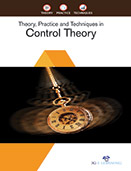Engineering and Technology

Control Theory is the theory of motivation proposed by William Glasser and it contends that behavior is never caused by a response to an outside stimulus. Instead, the control theory states that behavior is inspired by what a person wants most at any given time: survival, love, power, freedom, or any other basic human need. Control is based on the principle of feedback. In the closed-loop system the output of the system is used by the controller to determine the input to the system. There is a large body of literature on control of linear systems. In the last decades much attention has been given to robust control of linear systems. Currently there is attention for control of systems with saturations and with space constraints such as linear systems for artificial neural nets. Motivated by coding theory, linear systems on groups are receiving renewed interests. Primarily motivated by mechanics, control of nonlinear systems has developed within a differential geometric framework. Other engineering areas lead to bilinear systems and to polynomial systems. Control of stochastic systems has led to a body of results for filtering and stochastic control. Optimal stochastic control with an exponential type cost function has led to results on robust control and to interpretations of large deviations. Problems of detection and failure diagnosis for stochastic systems and for discrete event systems motivated by engineering problems have led to theory and algorithms that are applied in wide ranging fields. Applications of stochastic control are likely to occur in mathematical finance and in communication networks. Control of discrete-event systems is likely to progress in hierarchical and decentralized control so as to deal with complexity issues. Control of hybrid systems is expected to develop the interaction between the discrete and the continuous dynamics.
This book “Theory, Practice and Techniques in Control Theory” discusses the recent developments in the field of control theory. A wide range of identification and control methods applicable to processes are accompanied by typical comparable examples, encouraging you to make comparisons. This text includes robotics control; programmable logic controllers; self-tuning controllers; distributed computer control systems.